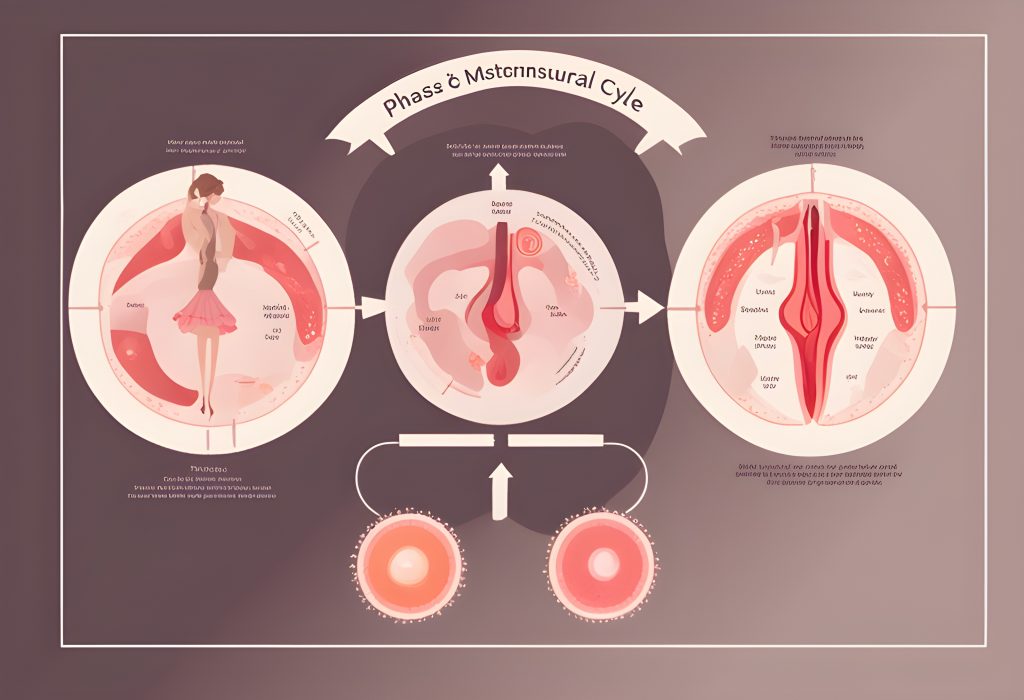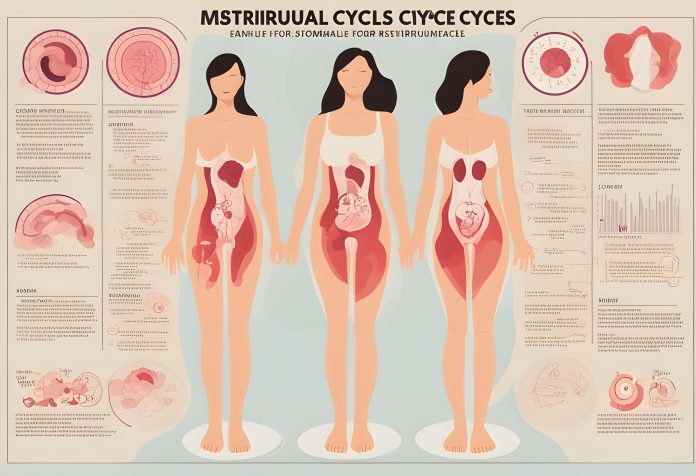Women’s health is a dynamic journey, and at the core of this intricate process is the menstrual cycle, a natural rhythm that reflects the body’s reproductive capabilities.
The menstrual cycle is a natural, recurring process in women’s reproductive systems, typically lasting around 28 days, although it can vary. It involves several phases, including menstruation (shedding of the uterine lining), the follicular phase (preparing an egg for release), ovulation (release of the mature egg), and the luteal phase (preparing the uterus for a potential pregnancy). The cycle is regulated by hormones, which aim to facilitate fertility.
Understanding the menstrual cycle is crucial for women’s reproductive health, helping them track fertility, manage menstrual symptoms, and identify potential issues.
In this comprehensive guide, we will unravel the complexities of the menstrual cycle, explore its phases, address common issues, and empower women to take charge of their reproductive well-being.
Phases of the Menstrual Cycle:

1. Menstrual Phase (Days 1-5):
The menstrual cycle begins with the shedding of the uterine lining, a process known as menstrual bleeding. This marks the start of a new cycle, typically lasting from day 1 to day 5.
Tips: Use menstrual cups or period-proof underwear for eco-friendly and cost-effective hygiene.
2. Follicular Phase (Days 1-13):
Following the menstrual phase, the body enters the follicular phase. During this time, hormonal changes stimulate the maturation of an egg within the ovaries, primarily under the influence of follicle-stimulating hormone (FSH) and estrogen.
Tips: Boost fertility awareness by monitoring cervical mucus changes to identify fertile days.
3. Ovulation Phase (Day 14):
Midway through the cycle, usually around day 14, a luteinizing hormone (LH) surge triggers a mature egg’s release from the ovary. This phase, known as ovulation, is a crucial period for fertility.
Tips: Use ovulation predictor kits for accurate ovulation tracking if planning conception.
4. Luteal Phase (Days 15-28):
Post-ovulation, the luteal phase begins. If pregnancy doesn’t occur, the corpus luteum, formed from the egg’s follicle, produces progesterone, preparing the uterine lining for potential pregnancy.
Tips: Address premenstrual symptoms by incorporating relaxation techniques like yoga or meditation.
Common Menstrual Cycle Issues:

1. Irregular Cycles:
Irregular menstruation can be attributed to various factors, including hormonal imbalances. Lifestyle adjustments, stress management, and, in some cases, medical intervention can help regulate the menstrual cycle.
Tips: Maintain a menstrual calendar to track irregularities and identify potential triggers.
2. Painful Periods (Dysmenorrhea):
Menstrual cramps, or dysmenorrhea, can be managed through a combination of lifestyle changes, over-the-counter pain relievers, and alternative therapies like heat therapy or acupuncture.
Tips: Apply a heating pad to the lower abdomen for natural pain relief during cramps.
3. Premenstrual Syndrome (PMS):
Emotional and physical symptoms associated with PMS can be mitigated through self-care practices, dietary adjustments, and, in severe cases, medical intervention.
Tips: Consider herbal teas like chamomile or peppermint for calming PMS-related anxiety.
Taking Control of Menstrual Health:

1. Tracking Your Menstrual Cycle:
Menstrual cycle tracking can offer valuable insights into fertility, ovulation prediction, and overall reproductive health. Various methods, from calendar charting to fertility awareness apps, empower women to understand their unique cycles.
Tips: Use mobile apps like Clue or Flo for convenient and accurate cycle tracking.
2. Nutrition and Menstrual Health:
A balanced diet rich in fruits, vegetables, lean proteins, and whole grains supports menstrual health. Essential nutrients such as iron, calcium, and vitamins are crucial to well-being.
Tips: Include iron-rich foods like spinach and legumes to combat fatigue during menstruation.
3. Lifestyle Practices:
Healthy lifestyle practices, including stress management techniques, regular exercise, and prioritizing quality sleep, contribute to a positive menstrual experience.
Tips: Practice mindfulness meditation to alleviate stress and enhance overall well-being.
Conclusion:
Understanding the intricacies of your menstrual cycle is a journey toward comprehensive well-being. You can confidently navigate your reproductive health by embracing your body’s natural rhythm, addressing common issues, and incorporating informed choices into your lifestyle. Remember, consulting healthcare professionals for personalized advice is crucial, ensuring you receive the support and guidance tailored to your unique needs. Here’s to embracing your menstrual health and embarking on a journey towards a vibrant and empowered life.














